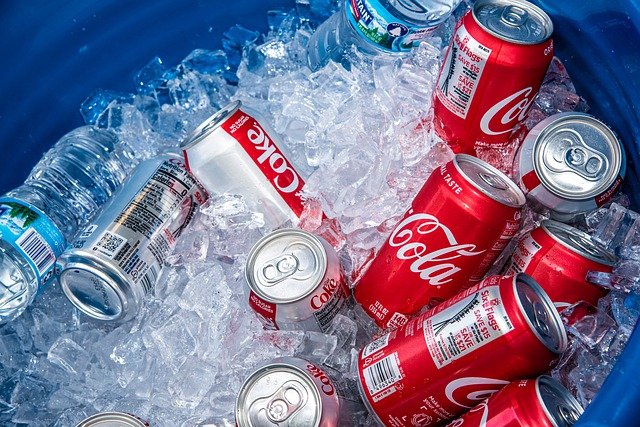Food and Beverage Branding is a crucial aspect, for marketing just for consumer-facing products like dog food brands or popular food brands in India, but also for B2B companies that supply products to restaurants and other establishments. While B2B companies may prioritize sales initiatives over marketing and branding efforts, establishing a recognizable and trustworthy brand through a strong food logo design or branding name can still be important. By doing so, these companies can differentiate themselves from competitors and build a reputation for quality and reliability in the industry.
It’s simple for many B2Bs to gloss over certain marketing strategies, as the common wisdom is that such tactics are more productive in the consumer space. For example, take branding. Some of the most famous and popular restaurants the world has ever known, from Starbucks to McDonald’s, long ago developed their brand, says Astro Strategist cum Business Astrologer Hirav Shah.
Shah further adds, “In these changing times, as customers in both the B2C and B2B space spend a lot of their time online, it’s time for the food and beverage industry to keep in mind just how they present their operation to the general consumers.”
Table of Contents
Why Branding is as important in B2B as it is in B2C
1. Builds brand recognition
Branding is crucial in both B2B and B2C marketing as it helps to build brand recognition. When a food or beverage brand has a strong brand identity, it becomes easier for businesses to recognize and remember the brand. This can lead to increased sales and partnerships.
2. Establishes trust
A strong brand identity can also help to establish trust between businesses. When a food or beverage brand has a consistent and reliable image, it can help to build trust with potential partners and customers. This can lead to long-term partnerships and increased sales.
3. Differentiates from competitors
In a crowded market, branding can help to differentiate a food or beverage brand from its competitors. By creating a unique brand identity, businesses can stand out and attract more attention from potential partners and customers.
4. Communicates values and mission
Branding can also help to communicate a food or beverage brand’s values and mission. This can be important in B2B marketing as businesses often look for partners that share similar values and goals. By communicating these values through branding, businesses can attract like-minded partners and customers.
5. Increases perceived value
A strong brand identity can also increase the perceived value of a food or beverage brand. When a brand has a consistent and recognizable image, it can be seen as more valuable and trustworthy. This can lead to increased sales and partnerships.
6. Creates emotional connections
Branding can also help to create emotional connections with potential partners and customers. When a food or beverage brand has a strong brand identity, it can evoke positive emotions and associations. This can lead to increased loyalty and repeat business.
7. Supports marketing efforts
Finally, branding can support marketing efforts in both B2B and B2C marketing. By creating a consistent and recognizable brand identity, businesses can create more effective marketing campaigns and reach a wider audience. This can lead to increased sales and partnerships.
Top 20 Indian Food Companies in 2023
1. Nestle India
2. Britannia Industries
3. ITC Limited
4. Parle Products
5. Amul
6. Haldiram’s
7. MTR Foods
8. Godrej Tyson Foods
9. McCain Foods India
10. Mother Dairy
11. Dabur India
12. Patanjali Ayurved
13. Kwality Limited
14. Vadilal Industries
15. Bikanervala Foods
16. Gits Food Products
17. Rasna International
18. Tasty Bite Eatables
19. Kohinoor Foods
20. ADF Foods Limited
Hirav Shah explains that branding ties together the B2C consumer and B2B operator, which benefits everyone.
And the best example of this tactic is Heinz showing its grip on its brand equity in the consumer space. In many restaurants all through the USA, Heinz ketchup bottles are used, and we all identify its distinctive bottle. Heinz has established a foothold in the consumer consciousness, by making its B2B products highly visible to consumers, which only helps it generate more business from B2B and as well as B2C customers. The more the typical diner is loyal to Heinz, therefore, the more restaurants are going to stock its products.
But Heinz doesn’t coast on its reputation or rest on its laurels. The company is ever invested in modern branding. They utilize all tactics and channels at their disposal, and this was evident with their 2017 Rise Against Hunger campaign.
This involved customers snapping selfies with Heinz bottles, and in turn, the company donated $1 each to causes geared towards ending global hunger. This strategy helped brand Heinz as public-spirited (something today’s generation of pre-millennials and millennials appreciate), and also it leveraged social media for greater visibility.
B2B food and beverage companies of all streaks would profit from taking a page from Heinz and invest in that comprehensive level of branding.
Social media branding raises your company profile
Social media has become a crucial tool for restaurant operators and chefs to connect with their audience. With the majority of people using platforms like Facebook, Twitter, and Instagram, chefs have become social media experts, using these platforms to share recipe ideas, promote menu items, and announce restaurant openings. Social media marketing has become an essential part of any successful restaurant’s marketing strategy.
The simple reason for this is that these days, everyone is on social media. That includes restaurant operators and especially chefs. Take Facebook, Twitter, and Instagram, for example. Chefs are social media savvy where it concerns these platforms, using them for a number of purposes. These include:
- Obtaining and sharing recipe ideas
- Spreading the news about restaurant openings
- Promoting menu items
And much more. Instagram, due to its visual nature, is a particularly effective platform for these purposes, and there are constantly evolving lists of the most popular/best chefs to follow on Instagram. Then it perfectly makes sense for B2B companies to meet these operators and chefs where they are. The next step, therefore, is to start thinking like a B2C and design great social media content with your audience of operators and chefs in mind.
On social media, these potential customers want to see things like these from food/beverage brands. Appealing and engaging content includes premium-quality pictures of food, menu/recipes app info, and interviews and insights from other chefs.
And regarding that millennial, modern audience alluded to above, any content that stimulates the charitable endeavors or sustainability practices of the food/beverage company in question is always going to perform well.
The last step after you have developed your appealing content is to get it in front of your target audience. Both Facebook and IG allow businesses to purchase target ads but know that in the case of Facebook, their algorithm changed in 2018. This makes it tougher to get organic views of ads, as Facebook is focusing on more ‘meaningful’ interactions. The answer to this is to target the promoted posts. LinkedIn is also a great advantageous platform for food/beverage B2Bs looking to reach out to their target audience, as their ad engine allows for industry targeting and job-title.
The whole point of all of this social media marketing is to get those chefs and operators as excited about your brand as they care about anyone else they follow on social platforms.
Branding is an inherent part of the buyer journey
B2B marketing, or business-to-business marketing, is the process of promoting and selling products or services to other businesses rather than individual consumers. The ultimate goal of B2B marketing, like any marketing, is to move prospects through the sales funnel and convert them into customers. However, in today’s market, even B2B companies need to focus on building their brand to accelerate this customer journey. By increasing brand visibility and awareness, businesses can decrease the time it takes for potential clients to find them and increase goodwill. Good branding also earns credibility, which can lead to greater sales in the long run. So, whether you’re a B2B or B2C operation, effective branding is essential for success.
If the above points serve to depict any one theme, it’s that B2Bs in the food and beverage sector need to begin thinking beyond their customers and focus on the end consumer. Operators and chefs have established their brands with this end consumer in mind. Always remember that your brand can and must be a part of this synergy, which will tether your operation to theirs, allowing for greater visibility, growth, and success.
Conclusion
Hirav Shah says., “It is always recommended that consulting an Astro Strategist or Business Astrologer helps in making your brand stronger. Astrology is of great help in achieving phenomenal growth in your business and to make your brand stronger.
Most successful entrepreneurs believe that timing is everything, and that is why they take the help of an Astro-Strategist or business astrologer to get an advantage of running the business successfully.
With the help of astrology, Business astrologers can analyze your self-image and brand image and develop it accordingly. They will use the tools of modern brand development to achieve your targets. Some of these tools include customer surveys, target group analysis, benchmarking, and web stats analysis. By combining these tools with astrology and they come up with the aligned trends that your business needs to follow to make your brand stronger in the market.”
As per Hirav Shah, such astrological techniques for successful and forward-thinking brand positioning are the latest trend these days and they are definitely fruitful as well.



































